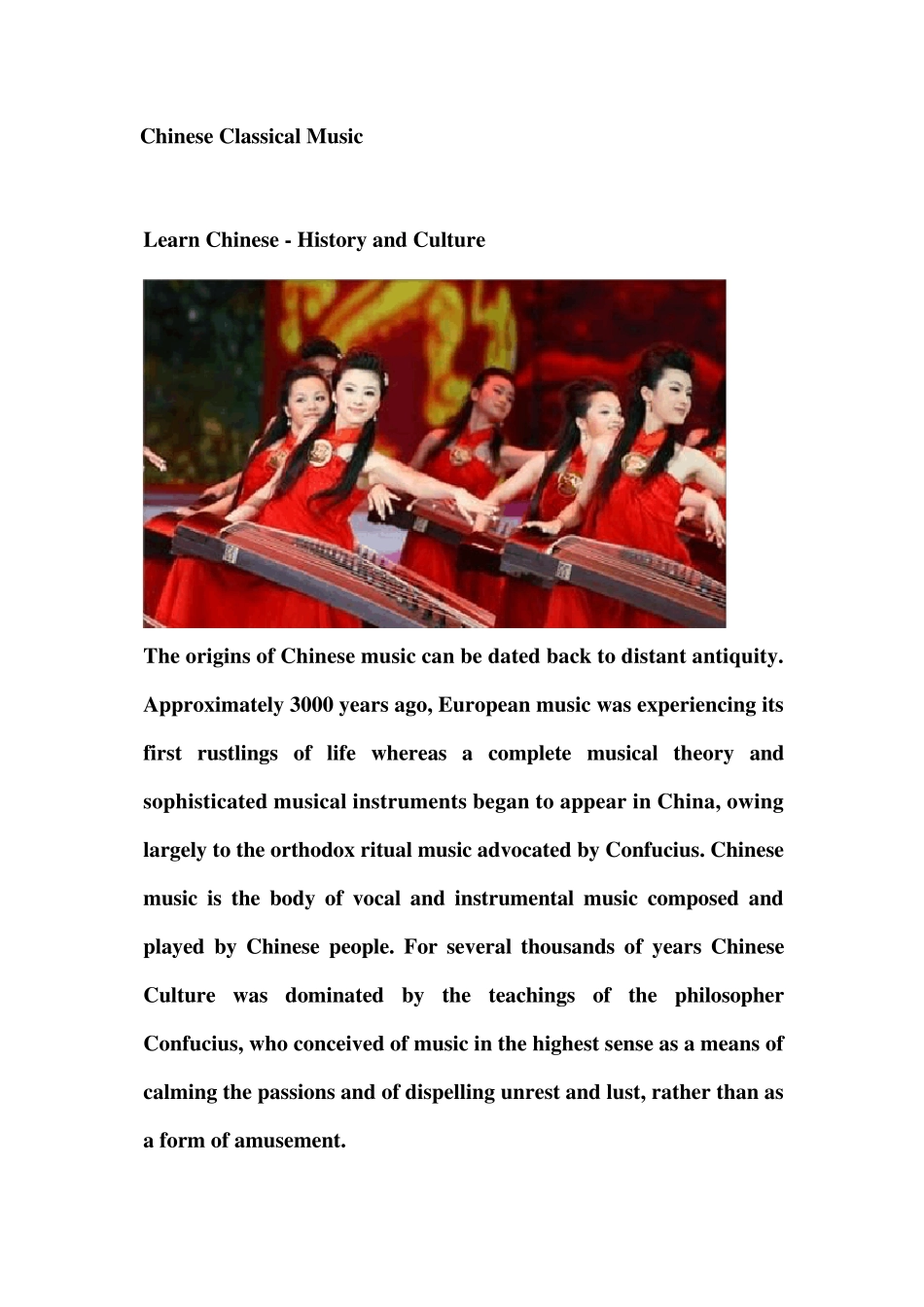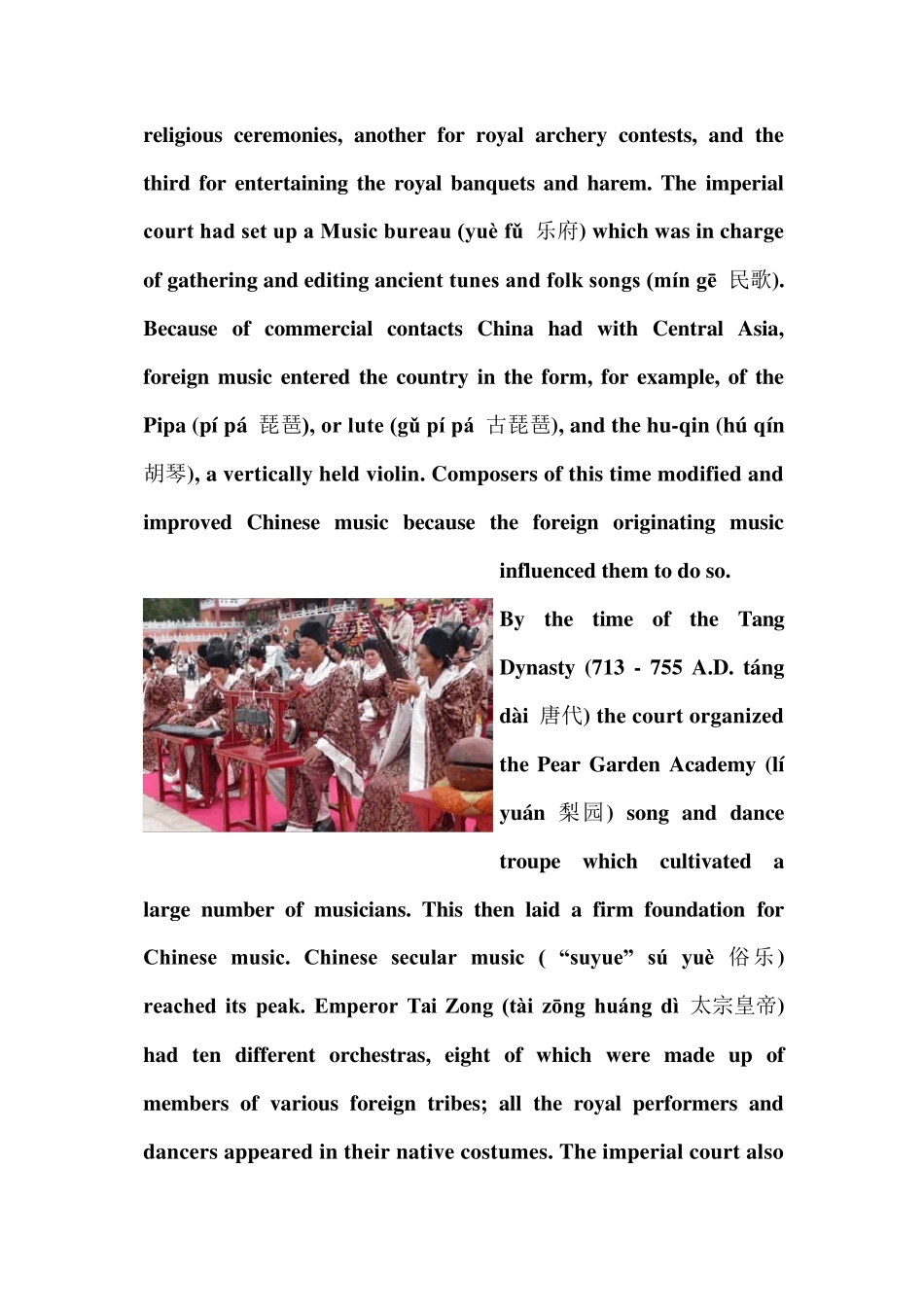Chinese Classical Music Learn Chinese - History and Culture The origins of Chinese music can be dated back to distant antiquity. Approximately 3000 years ago, European music was experiencing its first rustlings of life whereas a complete musical theory and sophisticated musical instruments began to appear in China, owing largely to the orthodox ritual music advocated by Confucius. Chinese music is the body of vocal and instrumental music composed and played by Chinese people. For several thousands of years Chinese Culture was dominated by the teachings of the philosopher Confucius, who conceived of music in the highest sense as a means of calming the passions and of dispelling unrest and lust, rather than as a form of amusement. Chinese music is as old as Chinese civilization. Instruments excavated from sites of the Shang dynasty (1766 -1027 B.C. shāng cháo 商朝) include stone chimes (shí zhōng 石钟), bronze bells (tóng zhōng 铜钟), panpipes (pái xiāo 排箫), and the sheng (shēng 笙). In the Chou dynasty (1027-256 B.C. zhōu cháo 周朝) music was one of the four subjects that the sons of noblemen and princes were required to study, and the office of music at one time comprised more than 1400 people. Although much of the repertoire has been lost, some old Chinese ritual music ( “ yayue” yǎ yuè 雅乐) is preserved in manuscripts. During the Qin dynasty (221-206 B.C. qín cháo 秦朝) music was denounced as a wasteful pastime; almost all musical books, instruments, and manuscripts were ordered destroyed. Despite this severe setback Chinese music experienced a renaissance during the Han dynasty (206 B.C. - 220 A.D. hà n cháo 汉朝), when a special bureau of music was established to...


